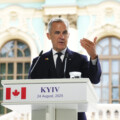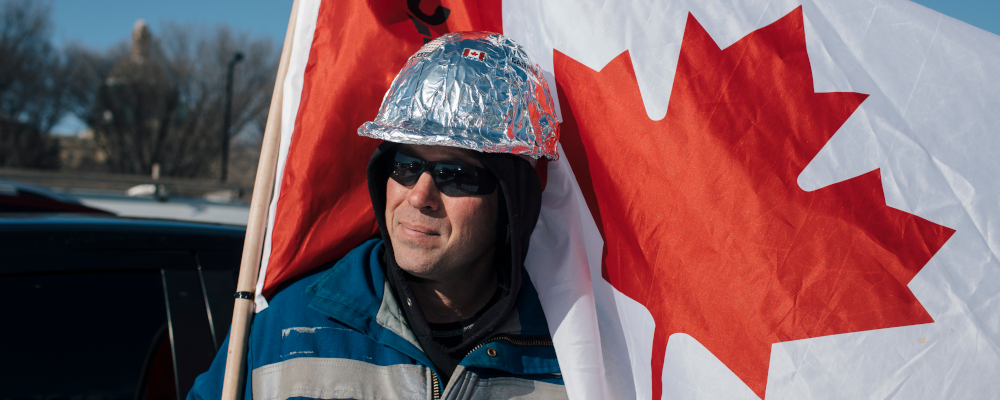The Great Canadian Trucker Protest was a national embarrassment. The police were unprepared and overwhelmed, the protestors harboured a non-trivial proportion of kooks and insurrectionists, and governments swung wildly from perplexed resignation to panicked overreach.
But despite its peculiar (and peculiarly Canadian) features, the protest was just the latest in a series of intense yet amorphous populist uprisings that have roiled the globe in the 21st century. As presciently described by Martin Gurri in 2014’s Revolt of the Public, the internet, mobile phones, and social media have dramatically eased people’s ability to communicate and organize to strike back against (what they perceive as) incompetent, self-dealing, and contemptuous elites. While the ideological valence and normative legitimacy of these movements vary, their dynamics and trajectories are remarkably similar, from the Arab Spring to Occupy Wall Street to the Yellow Vests to Black Lives Matter to January 6.
Unfortunately, the main effect of these movements has not been to spur constructive policy reform or renewed social consensus. Rather, it has been to foster political polarization and institutional distrust. It is not crazy to think that, left unchecked, these trends threaten the continued viability of liberal democracy and the unprecedented peace, prosperity, and equality that it has engendered.
Unpacking the many technological, economic, and social roots of this problem are well beyond my ken. So are the long-term solutions (if there are any). But there are at least two simple steps that governments, politicians, and police agencies can take to reduce the odds of another trucker-like fiasco.
First, governments should refrain from needlessly antagonizing ordinary people. The proximate cause of the trucker protest—the federal government’s refusal to exempt cross-border commercial drivers from mandatory vaccination—is a case in point. With a high proportion of Canadians (including truckers) fully vaccinated, and with Omicron proving to be both markedly more transmissible (even for the vaccinated) and less lethal than previous variants, the public health rationale for mandatory trucker vaccination was extraordinarily weak.
The fact that the U.S. imposed the same requirement is beside the point. The Canadian government’s intransigence sent the message that those opposed to vaccine mandates do not deserve its respect. As dissident Liberal MP Joël Lightbound might have phrased it, the trucker policy seemed designed to placate those who “can earn a living on a Macbook at the cottage” rather than to protect the health of those who cannot.
The government’s divisive and exclusionary message was amplified when Prime Minister Trudeau chastised the truckers, not for illegal conduct, but for their “unacceptable views,” including “anti-Semitism, Islamophobia, anti-black racism, homophobia, and transphobia.” To the extent that individual protestors professed such beliefs, they deserve opprobrium. But by painting the entire movement in this light, Trudeau reinforced the perception that anyone deviating from pandemic orthodoxy, however reasonably, is a deplorable rube.
The second thing we can do to avoid a repeat of Truckergate is to press governments and police to recommit to the impartial application of the law. The weeks-long occupation of central Ottawa, along with the border blockades in Windsor, Coutts, and elsewhere, should remind us of the centrality of law enforcement (including the imposition, where necessary, of state-sanctioned violence) to the maintenance of order in a liberal polity.
The criminal law sets out the baseline, consensus norms required for peaceful coexistence in any complex, pluralistic society. While it is a blunt instrument that should be used with restraint, there is nothing more corrosive to social trust than the appearance of impunity for widespread and systematic lawbreaking. While many Canadians were initially sympathetic to the truckers’ cause, most were ultimately (and understandably) repelled by their intransigence and disrespect for these basic social norms.
In response to considerable public and political pressure, the police eventually mounted an effective and proportionate response. But their initial paralysis hints at a culture of excessive risk aversion and some measure of ideological bias. Police are rightly independent of direct executive control and must exercise their discretion in light of resource constraints and competing social interests. Ultimately, however, that independence hinges on people’s trust that police will enforce the law fairly and consistently.
Politicians also have a responsibility to respect law enforcement impartiality and engender respect for the rule of law, regardless of lawbreakers’ ideological motives. Just as some left-wing politicians demonized the protestors for their heterodox beliefs, some on the political right valorized them and appeared to condone or encourage blatantly unlawful conduct. While it may be naïve to expect principled consistency from our political leaders, we should not hesitate to call out the hypocrisy of the next progressive legislator who counsels inaction in the face of an unlawful railway blockade or the next conservative one who demands an immediate paramilitary response.
Lastly, the failure of police to enforce ordinary criminal prohibitions may also tempt governments to employ more questionable means to quell dissent, such as restricting basic freedom of movement or freezing the bank accounts of protestors and their financial supporters. The further the state becomes involved in monitoring and controlling expression or conduct tangentially connected to concrete criminality, the less legitimacy its monopoly on violence will have.
Citizens in a pluralistic society will often vehemently disagree on matters of policy and conscience. There is always a risk that these disputes will devolve into a Manichean struggle to impose one group’s norms on another. This makes it all the more important to impartially and consistently enforce the few norms attracting near-universal consensus, including the criminal law.
Recommended for You

J.L. Granatstein: It’s time for national military service

Kirk LaPointe: What can Mark Carney the goaltender tell us about Mark Carney the prime minister?

The Weekly Wrap: Is the Poilievre comeback real?

Stephen Staley: The culture war comes for Cracker Barrel



